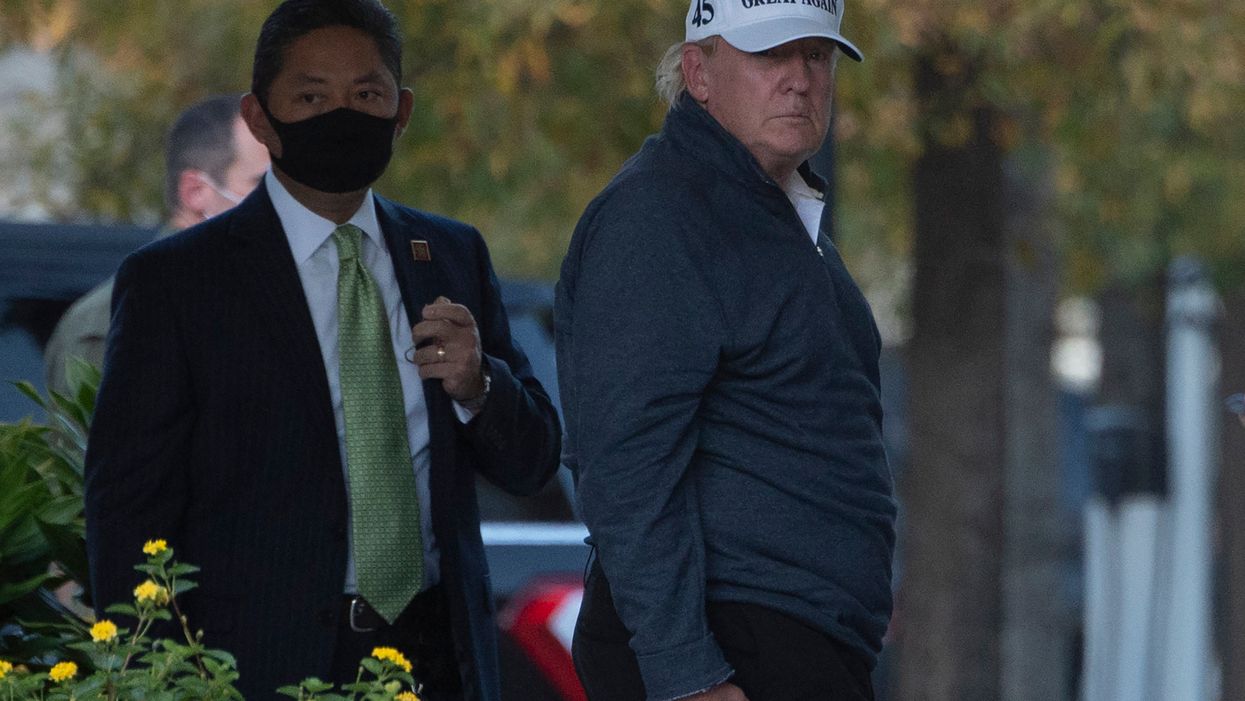McHugh retired in 2012 after 11 years as a justice of the Massachusetts Appeals Court. Marcuss is a retired partner at the law firm Bryan Cave and a former senior fellow at Harvard's Kennedy School. They are on the steering committee of Lawyers Defending American Democracy.
Mitch McConnell refuses to accept the verdict of the American people. The Senate majority leader is willing to indulge President Trump's attempt to destroy American democracy, by supporting his fight to stay in office despite his repudiation by nearly 78 million Americans and a margin of at least 5.3 million votes. Other Republicans give Trump and McConnell comfort by standing on the sidelines in silence.
This must end if American democracy is to survive. The norms of democratic behavior must be restored. The divisions that have poisoned this country must be bridged. This calls for enlightened behavior.
President-elect Joe Biden has started the healing process by assuring Americans that he will be the president of all the people once he takes office. His history of reaching across the aisle in search of compromise gives hope. He is in a better position than most to appeal to those who care for the future of the country, to persuade them of the importance of ensuring that the mechanisms of democratic government survive. If he is successful, we may see the beginning of the end of the nightmare to which we have been subjected by an incompetent and corrupt president.
It will be just a beginning, however, unless the abuses of power that have crept into our system of government are recognized and reversed.
One week before the election, a compendium of abuses of power and needed reforms was released by our organization. More than 2,000 attorneys — including former judges and prosecutors, law school deans and managing partners of large law firms — formed two years ago to enlist our colleagues in the legal community to speak out against the threats to our democracy and to demand that Trump and Congress honor the fundamental principles, norms and values of our democracy.
Among the reforms we proposed are:
- Compelling presidential compliance with congressional subpoenas and requests for government testimony.
- Punishing government officials who lie and deceive the American public.
- Prohibiting permanent "acting" government officials from exercising any power.
- Prohibiting the Justice Department from being the president's personal law firm
- Prohibiting use of the pardon power to protect presidential wrongdoing.
- Punishing civil servants who work on the president's political objectives.
- Outlawing nepotism, especially in the White House.
- Prohibiting use of the White House for self-enrichment.
- Requiring disclosure of the president's and vice president's business interests and tax returns.
- Prohibiting revenge against whistleblowers and others who tell the truth.
- Prohibiting voter suppression.
Many of these proposals will require legislation. For most of our history, legislation was not thought necessary. Most Americans understood implicitly that abuses of power would undermine the delicate checks and balances that make our Constitution work. The experience of the last four years has taught us otherwise.
Without legislation, the risk of repeated abuses is real. In an age increasingly vulnerable to autocracy and the preservation of power for its own sake, we cannot count on what was implicit in the past being what governs the future.
Legislation alone, however, is not enough. Compassion and empathy cannot be compelled. Respect for truth, diversity, political compromise, unbiased law enforcement and an independent judiciary comes from within. It requires a willingness to reach out to opponents in order to understand their concerns and grievances, and a desire to find common ground that satisfies competing interests. And it requires repudiation of the instinct for a "they did it, now it's our turn" approach to governance.
The winner-take-all approach to governance makes losers of us all.
Presidential elections are often bitter contests. Candidates frequently claim that an election is the most important in American history and that the future of our republic depends on the outcome. This time the future of the republic really is at stake.
Trump long ago refused to say he would leave office peacefully if the election went against him. He said that an election he did not win had to be fraudulent. He did what autocrats do: Participate in the election as a fig leaf and discredit it if they lose.
In Shakespeare's "Julius Caesar," Mark Antony observes: "The evil that men do lives after them; the good is oft interred with their bones." The evil the defeated president has done will persist long after he is gone — unless it is eradicated.
We have the means to do it. If we fail, the good that is in America is destined for interment with her bones.



















Trump & Hegseth gave Mark Kelly a huge 2028 gift